I’m writing this on a beachfront balcony with a spectacular ocean view. My hotel room is spotless, spacious and well-equipped. Meals are delivered to the door thrice daily, and my all-inclusive two-week stay is free. True, the beach remains tantalizingly inaccessible. But that’s the only downside of Taiwan’s quarantine system from where I sit.
In March 2020, the BBC caused a kerfuffle by quoting the mother of a British tourist who had bemoaned the “prison-like” and “filthy” conditions of a quarantine facility in Hualien. After a strenuous rebuttal from the Ministry of Foreign Affairs (MOFA) and the Central Epidemic Command Center (CECC), which included typically hyperbolic flourishes about “the damage done to the nation’s reputation,” the BBC promptly removed the report from its Web site.
Admittedly, non-home quarantine seems to have been a mixed bag since its introduction for non-residents early last year.
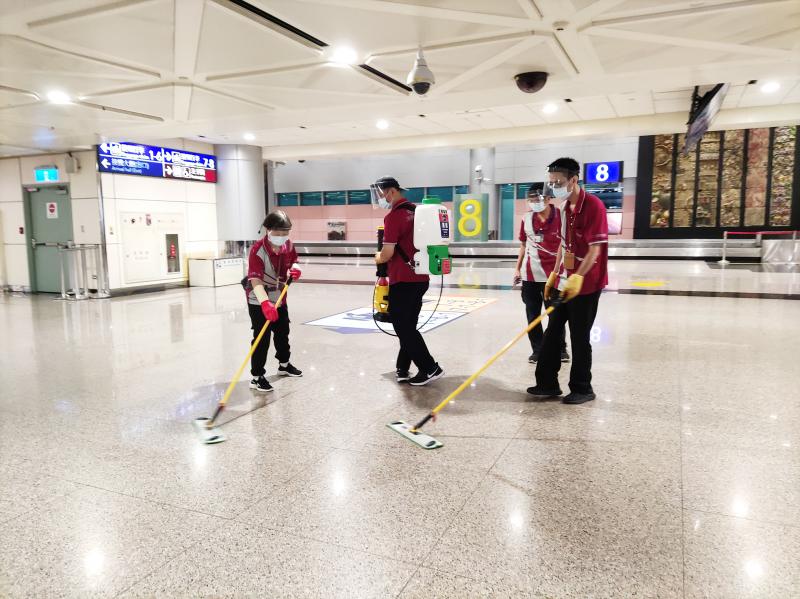
Photo: James Baron
The facility in Hualien was a converted school and looked spartan. The woman’s complaints about a lack of hot water were legit — MOFA admitting the shower in her room was broken — though quickly resolved, according to officials, as were requests for gluten-free meals.
There was, however, no response from MOFA or Minister of Health and Welfare and CECC head Chen Shih-chung (陳時中) to claims about an absence of laundry facilities. My experience suggests this was another reasonable gripe.
Further devil’s advocacy: The Brit got hit with this during a stopover en route to Australia and, while she should have been prepared, this was early on, when there was even more confusion than there is now.
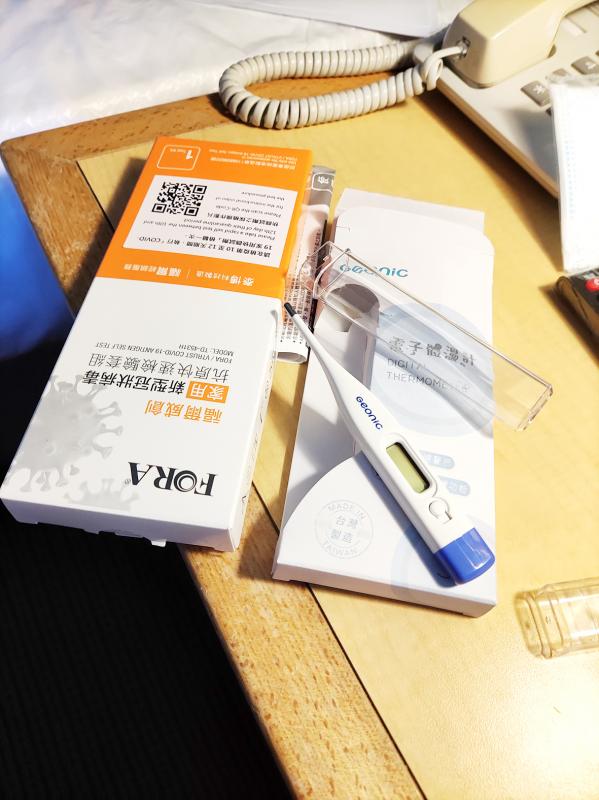
Photo: James Baron
Still, the couple were told they could stay in their original guesthouse for the duration but pled poverty. So, they got the dorm facility for NT$267 a night. This essentially covered the food, which was lambasted for its “poor quality and meager proportions.” What did they expect for seven quid?
More recently, a self-paid quarantine hotel in Miaoli County was fined by the county government for sanitation and services that were deemed so poor that Consumers’ Foundation Chairman Terry Huang (黃怡騰) said they would “bring shame to Taiwan.”
Perhaps I got lucky — though, as the saying goes, you make your own luck.
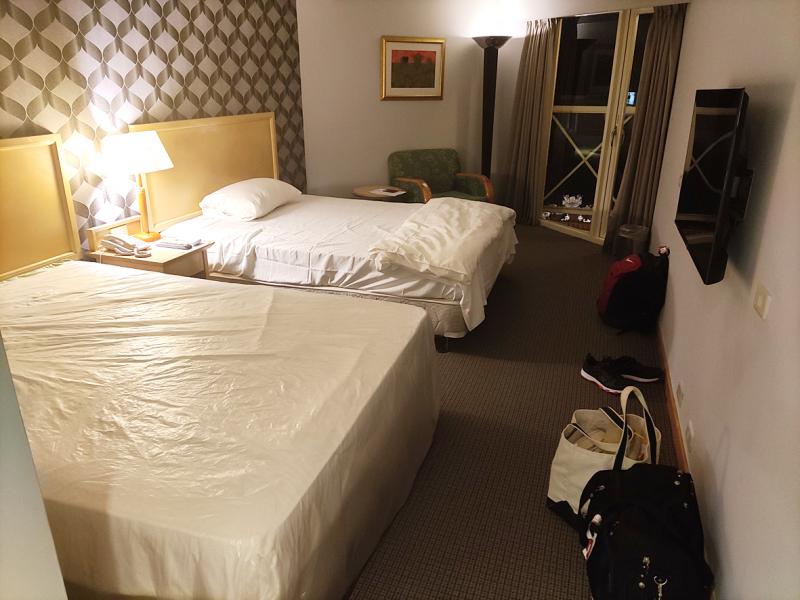
Photo: James Baron
CHANGE OF RULES
After months of back-and-forths with representative offices in seven countries, I decided upon a route to Mallorca, where my family have a home. I’d received my second AstraZeneca jab on July 1 and was to fly two weeks later — the minimum advised period after the second shot.
I still wasn’t sure whether we would be allowed into Spain, as the Spanish Chamber of Commerce in Taipei couldn’t or wouldn’t give me a straight answer and eventually stopped answering my e-mails and calls. There were several contingencies: flying from Taiwan, entering as British nationals and — crucially — the transit point.
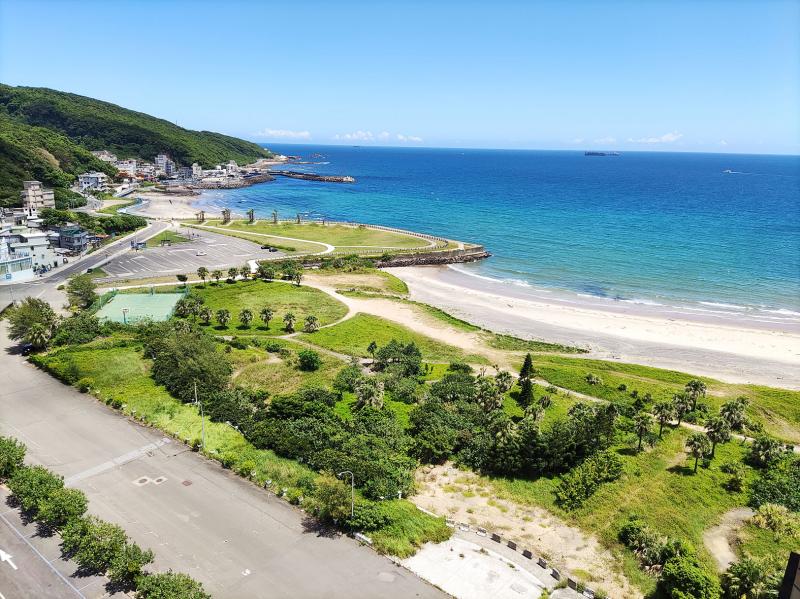
Photo: James Baron
Days before the second jab, an end to home quarantine for residents was announced. Returning with my younger son would cost at least NT$56,000 for a 14-day hotel stay. But there was a loophole: Anyone coming from one of seven countries deemed high-risk because of the Delta variant would stay for free in a government facility.
Responding to claims that the new policy encouraged rerouting via the danger zones, Chen insisted this was neither “necessary” nor “cost-effective.” This was obvious nonsense. One swift phone call to the Taiwan Centers for Disease Control (CDC) hotline to confirm that transit would suffice, and I immediately rerouted my return through London.
FAMILIAR SCENE
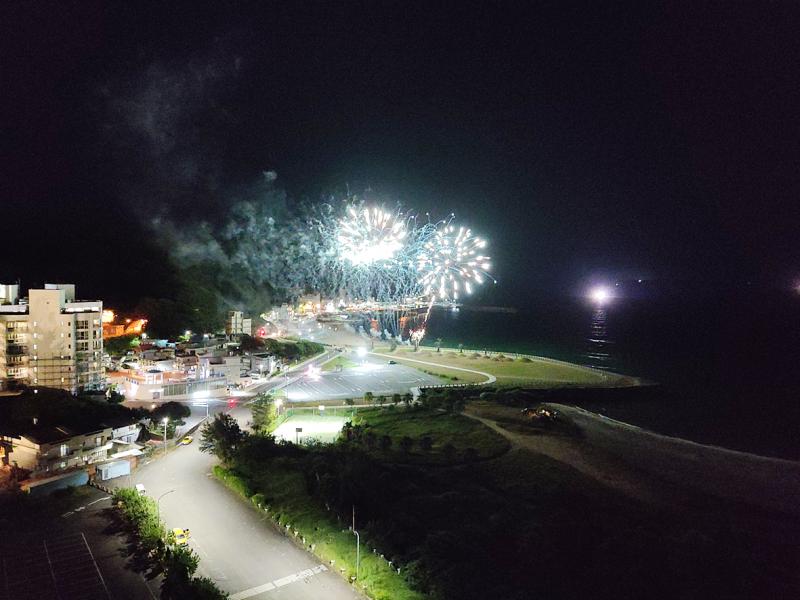
Photo: James Baron
I’d already heard horror stories about the free government facilities. Certain that conditions couldn’t be worse than many places I’ve stayed, I wasn’t bothered. Having slummed it in Burma, Mongolia and Russia — in tents, dorms and yurts — my son is also no fusspot.
At the very least, I knew what Taiwan offered would be relatively clean, with free meals and Wi-Fi, so I could work for the duration. It would also be a familiar language and culture.
What we got was well beyond expectation.
It is past 9pm when the designated airport bus rounds the bay at Dawulun (大武崙). There are seven of us — five flying from the UK and two from India. Although CDC staff didn’t reveal our destination, this stretch of coast is distinctive. Even in the dusk, my son and I recognized it as the spot where we’d been overtaken by some more serious cyclists while climbing in the opposite direction a year earlier.
A few kilometers on, just past Wanli UFO Village and its remarkable Futuro and Venturo houses, we pull into a carpark and stop alongside another familiar landmark — the abandoned faux-castle wing of the Howard Green Bay Resort.
PERSISTENCE PAYS OFF
Outside the back of the hotel proper, as the luggage is unloaded, a man in a convenience-store rain poncho, mask and goggles beckons us with a flashing traffic baton toward an illuminated doorway. We line up at socially distanced intervals, waiting to be checked in by a pair of CDC employees clad in hazmat suits.
The first and only real problem is their insistence that my son cannot stay with me. Online CDC regulations mention under-12s staying for free with parents in self-paid hotels. But I see nothing corroborating the claim that children over 12 must quarantine separately. One day of whingeing via the contact channel each inmate sets up on the Line app, and they relent.
I phone my son next door to convey the good news. “Now?” he asks, the disappointment obvious. “I thought I could have another couple of days.”
Most of our correspondence goes through Line. Almost every request is initially turned down, but I’ve been in Taiwan long enough to know that persistence works wonders.
RULES AND REGULATIONS
The only things that are flat-out denied me are a rack on which to hang the clothes that we have washed in the bath with the powder they provide, and a charger cable for my phone. This is annoying because, contrary to expectations and despite assurances that a router has been placed near our room, the Wi-Fi is almost useless.
To pass the time, we do push-ups, read and watch eagles scouring the waves that surfers try to catch. One evening, there’s a fireworks display to mark the end of Ghost Month; two days later, a rainbow penetrates the cloudy sky. Most nights, the rows of lightbulbs dangling from fishing boat rigging turn the rippled sea into the shimmering rungs of a ladder, stretching across the bay toward a blinking lighthouse.
Some of the rules are stupid and have an authoritarian tone: #7: two short windows for care package deliveries, with all contents to be itemized and anything unlisted to be withheld to “avoid disputes,” followed by the contradictory #8, warning not to “leak” the facility location on pain of prosecution.
On the morning of our release, we walk along the beach. Having enjoyed mask-less outdoor strolls in Europe a couple of weeks earlier, it grates to see police monitoring beaches to ensure isolated individuals are covered up. A week before we left Taiwan, we were stopped by police in the foothills of Yangmingshan — not a soul in sight — and aggressively harangued for having our masks down so we could take a breather after a challenging ride.
Of course, all bets are off in this COVID era as governments strive to strike a balance, but — based on my two weeks in quarantine — Taiwan continues to excel. What the authorities will do when things open up is another question.

Anyone who has been to Alishan (阿里山) is familiar with the railroad there: one line comes up from Chiayi City past the sacred tree site, while another line goes up to the sunrise viewing platform at Zhushan (祝山). Of course, as a center of logging operations for over 60 years, Alishan did have more rail lines in the past. Are any of these still around? Are they easily accessible? Are they worth visiting? The answer to all three of these questions is emphatically: Yes! One of these lines ran from Alishan all the way up to the base of Jade Mountain. Its

The entire saga involving the Taiwan People’s Party (TPP) and its Chairman Ko Wen-je (柯文哲) continues to produce plot twists at such a rapid pace that fiction publishers would throw it out for being ridiculously improbable. This past week was particularly bizarre, but surprisingly the press has almost entirely ignored a big story that could have serious national security implications and instead focused on a series of salacious bombshell allegations. Ko is currently being held incommunicado by prosecutors while several criminal investigations are ongoing on allegations of bribery and stealing campaign funds. This last week for reasons unknown Ko completely shaved

The only geopolitical certainty is that massive change is coming. Three macro trends are only just starting to accelerate, forming a very disruptive background to an already unsettled future. One is that technological transformations exponentially more consequential and rapid than anything prior are in their infancy, and will play out like several simultaneous industrial revolutions. ROBOT REVOLUTION It is still early days, but impacts are starting to be felt. Just yesterday, this line appeared in an article: “To meet demands at Foxconn, factory planners are building physical AI-powered robotic factories with Omniverse and NVIDIA AI.” In other words, they used AI

The rhythms of bustling, working-class Mumbai are brought to vivid life in All We Imagine as Light. The stunning narrative debut of filmmaker Payal Kapadia explores the lives of three women in the city whose existence is mostly transit and work. Even that isn’t always enough to get by and pay the rent. One of the women, a widow, recently retired from working her whole life at a city hospital, Parvaty (Chhaya Kadam), is even facing eviction. The other two, roommates and co-workers in the maternity ward are in different parts of life. Prabha (Kani Kusruti) has a husband from an